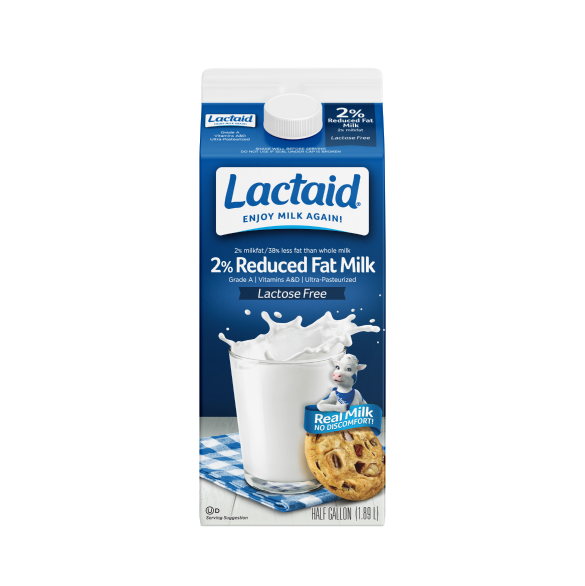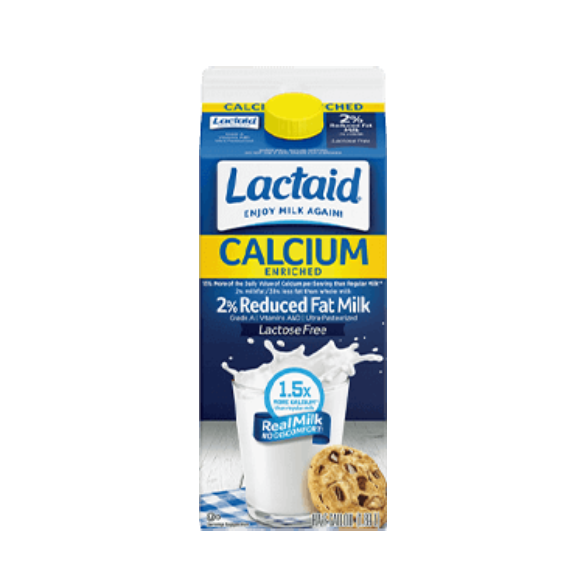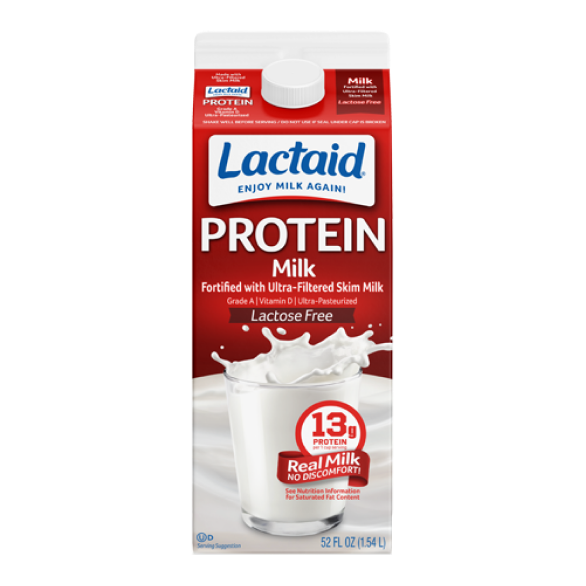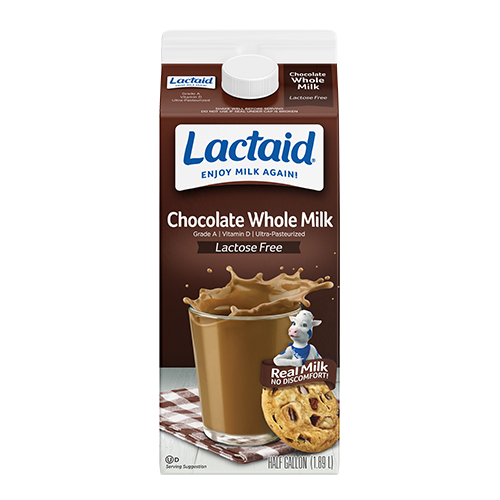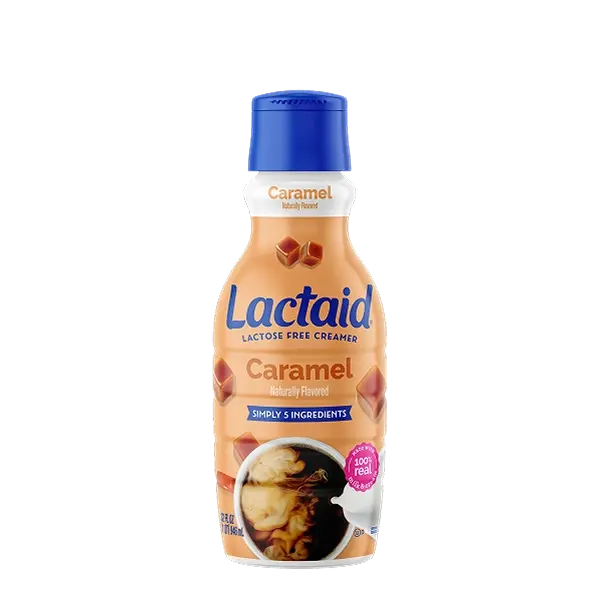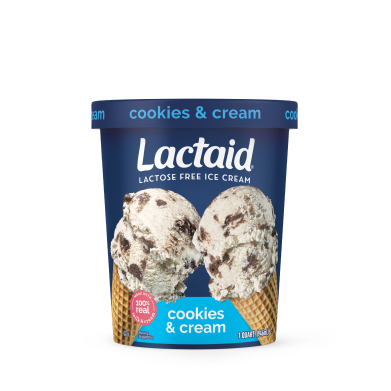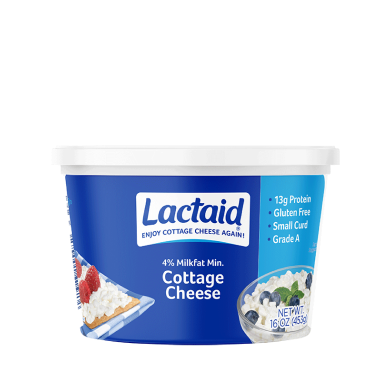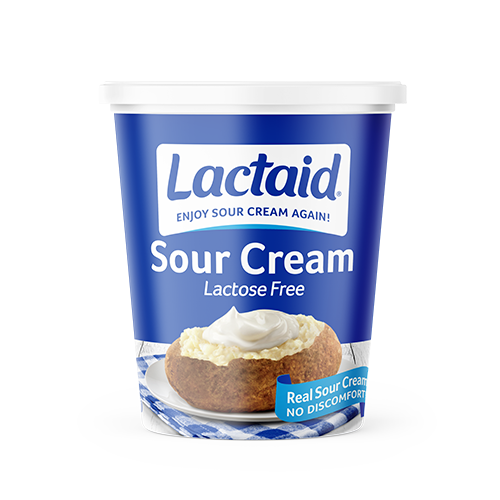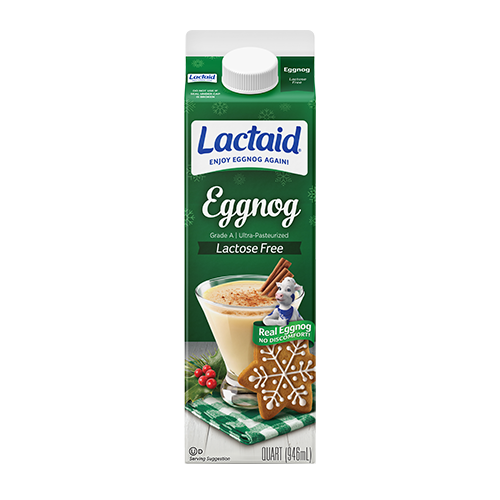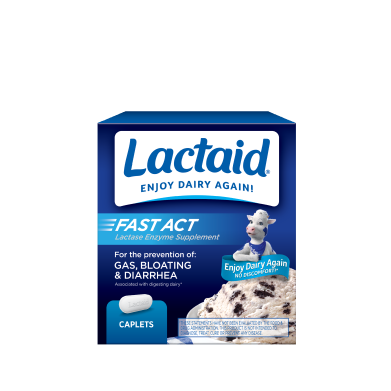What Is Lactose Intolerance?

What Does Lactose Intolerance Mean?
Ever had a slice of cheesecake and suddenly felt sick to your stomach? Or maybe had a bowl of cereal and can’t seem to shake off that feeling of nausea? If you sometimes feel sick after consuming dairy, then you might be lactose intolerant.
That’s because milk and dairy contain lactose, a naturally occurring sugar. When lactose isn’t broken down in the gut, it can wreak havoc on your digestive system. Some symptoms are so severe, they can have you calling in sick to work.
The science behind lactose intolerance, also known as lactose sensitivity, focuses on an enzyme known as lactase. When you have low levels of lactase in your gut, your body is unable to break down lactose into simple, digestible sugars.
This lactose then builds up in your gut, and you may experience uncomfortable symptoms such as:
Abdominal discomfort
Bloating
Nausea
Gas (flatulence)
Stomach cramps and
Diarrhea1
Keep in mind that lactose intolerance is not a milk allergy. However, it can take the fun out of eating dairy too. Not sure if you’re lactose intolerant? We have an at-home test that can also provide you with a better understanding if LACTAID® products are right for you.
What Is a Lactase Deficiency?
When you have a lactase deficiency, it means you have a shortage of the enzyme lactase. Lactase is what breaks down the lactose sugar found in milk and dairy into simpler, digestible sugars. When your lactose levels are low, your body can easily react to a buildup of lactose, and you can experience symptoms of lactose sensitivity2.
What Does Lactose Sensitivity Feel Like?
It can sometimes feel like someone lit a fire in your gut. Symptoms can occur thirty minutes to two hours after drinking milk or consuming dairy products. The intensity of your symptoms may vary depending on how sensitive you are to lactose. Symptoms can range from mild nausea, abdominal discomfort and gas, to severe stomach cramps, vomiting and diarrhea1.
What Causes Lactose Intolerance?
Lactase intolerance can occur at any phase in life. It starts when the cells lining your gut produce abnormally low amounts of lactase. A lactase deficiency can pick up gradually or suddenly depending on why your gut stopped producing lactase in the first place. This is usually genetic, but can also be caused by bowel conditions, infections, surgery or a bowel injury3.
Can You Develop Lactose Intolerance?
Yes, it’s possible to develop lactose intolerance. Some of the factors which make you more prone to becoming sensitive to lactose include:
Ethnicity - People of African American, Hispanic, Asian or Jewish decent have a higher risk of developing the condition.
Age – Lactose sensitivity can appear in your elderly years despite not having it as a child or young adult.
Genetics – Children born with a certain gene mutation can be lactose intolerant from birth.
Diseases affecting the gut – Disease affecting the gut can cause lactose intolerance e.g. Crohn’s disease, inflammatory bowel disease and celiac disease.
Cancer treatments - Cancer treatments that involve radiation therapy can cause intestinal complications and increase the chances of developing lactose intolerance2.
Types of Lactose Intolerance
There are three classified types of lactose intolerance that affect people living with the condition today.
Primary Lactose Intolerance – People with this type of lactose intolerance used to drink milk as infants. But as they gradually ditched their milk-rich diets to eat other foods, their guts slowed down lactase production. By adulthood, they find it difficult to digest milk or any dairy products.
Secondary Lactose Intolerance – This type of lactose intolerance happens to people who get a gut injury or illness, which causes the gut to sharply reduce the production of lactase. Some common diseases that cause secondary lactose intolerance include Crohn’s disease and celiac disease.
Congenital Lactose Intolerance – This unique genetic disorder results in babies being born lactose intolerant. Congenital lactose intolerance is extremely rare, and both parents must have this gene for the child to become lactose intolerant2.
How To Tell if You Are Lactose intolerant
If you’re still on the fence as to whether you have lactose intolerance, here are some tried and tested methods to help you determine just how sensitive you are to lactose:
Milk Challenge – The classic DIY way to know whether you’re lactose intolerant or not. Simply avoid consuming any milk or dairy products for a week or two and see if you have any stomach issues. If not, then drink a glass of milk and see how you feel an hour later. If you do experience symptoms, then you’re probably lactose intolerant. Learn more about how to perform an at-home lactose intolerance test.
Hydrogen Breath Test – Get in touch with your physician to see if you can perform a hydrogen breath test. Usually, they will tell you to drink a beverage that has lactose in it. After 15 minutes, you’ll be told to blow into a balloon bag, which might seem a little weird at first. But the air inside this bag will be tested for hydrogen, and if it contains high amounts of it, then you’re likely lactose intolerant4.
Blood Test – Hospitals and clinics can test your blood to see if you have lactose intolerance.
Stool Acidity Test – This test is usually given to young children to test for lactose intolerance. You can take your kid for this test if you’re suspicious they may be lactose intolerant.
Genetics Test – This involves giving a sample of your genes through saliva or blood and testing for lactose intolerance.
Surgical Biopsy – Doctors can do a biopsy of your small intestine to test your lactase production5.
Lactose Intolerance Treatments and Relief
While there is no true treatment for lactose sensitivity, you can still get relief from the symptoms of lactose intolerance by managing your lactose intake.
Take lactase supplements. Enjoy the delicious taste of real milk and dairy by using LACTAID® supplements. Our supplements contain lactase, to break down lactose found in milk products. So you can enjoy all your favorite dairy foods, without the discomfort. Pizza is back on the menu!
Enjoy lactose-free dairy. LACTAID® dairy products contain all the nutrients and goodness of real-dairy, just without the lactose. Try our range of lactose-free foods and beverages and enjoy that great real dairy taste without the real dairy side effects.
Take a walk. A brisk walk or jog can help loosen your abdominal muscles and stimulate your digestive system, which can help relieve stomach pain and release trapped gas.
Gently stretch. Some gentle stretches can help soothe lactose intolerance pain. You might even want to try some simple yoga poses6.
Try drinking ginger tea. Among the many benefits of drinking ginger tea regularly, some research suggests drinking ginger tea with lemon can help manage the symptoms of lactose intolerance.
Take peppermint. Natural peppermint oils can help treat gastrointestinal problems due to it’s antimicrobial, anti-inflammatory, antioxidant, and anesthetic activities. Try sipping on some natural peppermint tea, or taking natural peppermint oil capsules7.
Make your dairy portions smaller. For example, if you were used to taking a full glass of milk, then cut it by half8.
Eating yogurt can help manage the stomach discomfort that comes with lactose intolerance.
Learn more about how those with lactose intolerance can maintain a healthy and discomfort-free diet with our Lactose Intolerance Diet Tips.
Don’t see your question? Visit our FAQs page.
References
Lactose intolerance. (n.d.). Mayo Clinic. https://www.mayoclinic.org/diseases-conditions/lactose-intolerance/symptoms-causes/syc-20374232
Lactose intolerance overview. (2022, March 5). Mayo Clinic. https://www.mayoclinic.org/diseases-conditions/lactose-intolerance/symptoms-causes/syc-20374232
Lactose Intolerance. (2023, 03 03). Cleveland Clinic. https://my.clevelandclinic.org/health/diseases/7317-lactose-intolerance
Lactose intolerance diagnosis and treatment. (2022, March). Mayo Clinic. https://www.mayoclinic.org/diseases-conditions/lactose-intolerance/diagnosis-treatment/drc-20374238
Oller, B. (2021, August). Lactose intolerance. Familydoctor.org. https://familydoctor.org/condition/lactose-intolerance
Wong, C. (2023, May 17). How to stop lactose intolerance pain. Verywellhealth. https://www.verywellhealth.com/natural-remedies-for-lactose-intolerance-89286
4 home remedies for an upset stomach (plust 6 things to avoid). (n.d.). Nebraska Medicine University Health Center. https://health.unl.edu/4-home-remedies-upset-stomach-plus-6-things-avoid
Baby, D. P. (2022, June 26). Lactose intolerance: 14 ways to still love dairy. WebMD. https://www.webmd.com/digestive-disorders/ss/slideshow-dairy







